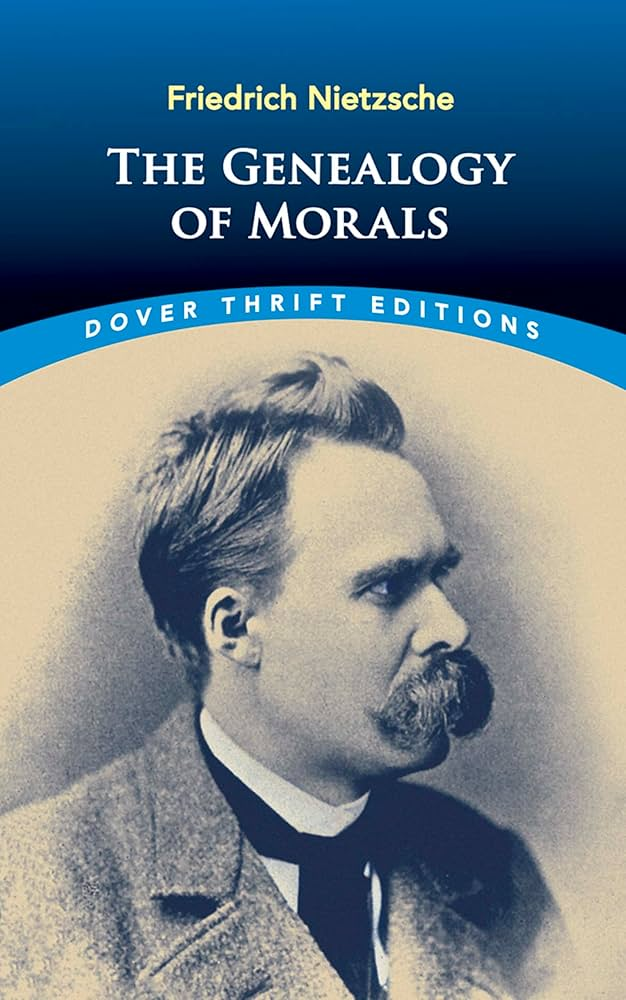
Favourite Quotes
“good and evil, both are fetters. The perfect man is master of them both.” p. 96
Summary
Did not write a summary.
Analysis
Notes and Quotes
- good and bad historically were words used for social class
- the aristocrat was ‘good’ while the poor man was ‘bad’
- there are many linguistic proofs of this claim, see page 12-14
- The Christians flipped the script and said the poor, needy, sick, weak, etc are the ones who are ‘good’
- Nietzsche criticizes the Christian outlook on how ‘good’ is associated with being weak, meek, poor, etc
- gods/religions are an invention to make sense of suffering - p. 43
- the consciousness of owing (guilt conscious) has greatly increased due to Christianity. Atheism frees mankind from this obligation. p. 61
- Christianity vs Greek religion, p. 64
- “he who possesses is possessed” p. 78
- “good and evil, both are fetters. The perfect man is master of them both.” p. 96
Main Idea of the Book
- Nietzsche critiques traditional ideas of morality, of good and evil. He instead emphasizes the importance of self-determination and individual free-will. Individuals should create their own values rather than accept those imposed by society
Reflections
I plan on re-reading this book at a later date.